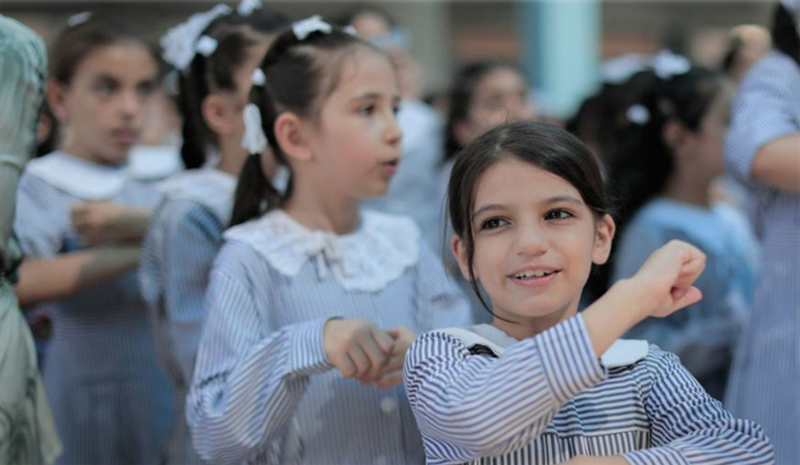Funding woes continue to plague UN Palestine refugee agency

The head of the UN agency that assists Palestine refugees across the Middle East, UNRWA, on Thursday appealed for consistent and sustainable financing to keep its operations running and avert chronic shortfalls.
UNRWA Commissioner General Philippe Lazzarini was speaking at UN Headquarters alongside the Deputy Prime Minister and Foreign Minister of Jordan, Ayman Safadi, following a meeting to support its lifesaving work, which is almost entirely funded by donor contributions.
Tweet URL
“It has become absolutely unbearable to deal with a situation where the needs of the Palestine refugees increase, the expectations increase, the region is hit by multiple crises, and at the same time to operate public-like services…with decreasing funding,” he said.
The tension is also fuelling “a feeling of abandonment by the international community”, he warned.
Critical support at risk
UNRWA delivers education, healthcare, protection and other services for nearly six million Palestine refugees in Jordan, Lebanon, Syria, the Gaza Strip and the West Bank, including East Jerusalem.
It was established in 1949 as a temporary agency to provide aid to Palestinians following mass displacement from land that became Israel, making it one of the first UN humanitarian operations.
The agency had been seeking up to $190 million by the end of the year, and another $100 million to keep food pipelines flowing in Gaza, Syria and Lebanon.
Pledges announced at the meeting will sustain services until at least the end of October “which means we will have to continue to redouble our efforts to mobilize the necessary support for the agency,” Mr. Lazzarini said.
“This financial crisis makes us run after the money all the time,” he remarked.
Learning losses
Mr. Lazzarini recently took the decision to open UNRWA schools even though he was unsure if they will remain open for the rest of the year. More than half a million children depend on the UN agency for education, its “flagship programme”.
He said education was hit hard by the COVID-19 pandemic and austerity measures, but also violence in the occupied Palestinian territories and in refugee camps, such as the clashes between factions at the Ein El Hilweh camp in Lebanon this month.
“One indicator which I was sharing with members here today was data on the fourth grade this year. Only 20 per cent of the students reached the average for Arabic and Mathematics, whereas in 2015 it was 60 per cent,” he said.
Beacon of hope
The donor meeting, held amid the high-level week of the UN General Assembly, was organized by Jordan and Sweden.
Mr. Safadi recalled that UNRWA will celebrate its 75th anniversary next year and still represents the only hope for Palestine refugees. He urged the international community to step up support.
“If we are still unable to establish justice for the Palestine refugees, let us at least give them a chance to live decently and in dignity,” he said.



